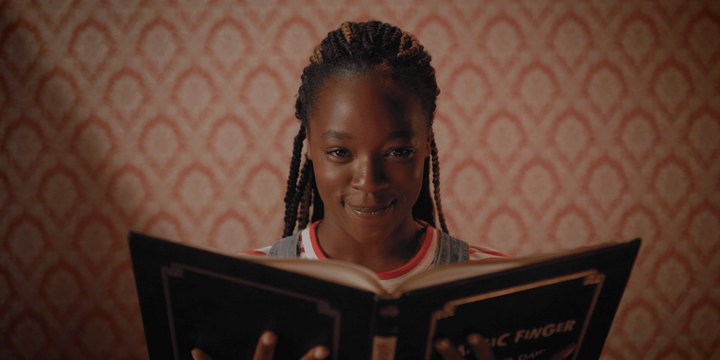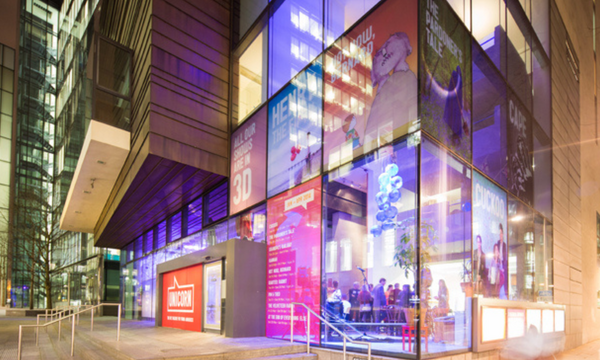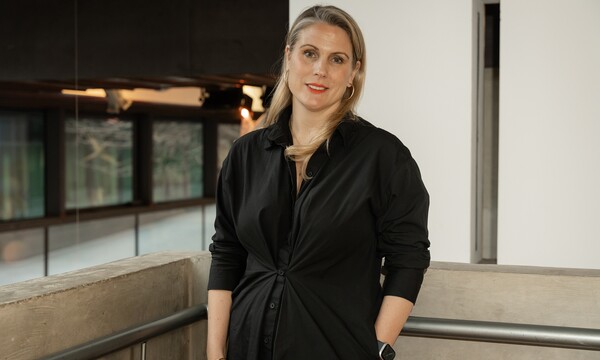Sustainability at the Unicorn: an update from Technical and Production Director Ria Tubman
latest News 29 Mar 2024News Story
My journey towards sustainable theatre production: Embracing The Green Book
With sustainability one of our core values, my role at the Unicorn is to ensure that our productions as well as our building operate in the most environmentally friendly way possible. One key tool that supports our sustainability goals is The Theatre Green Book, a set of regulations and guidelines that establish standards for environmentally friendly practices throughout the production process. From set construction to energy consumption, adherence to these standards is paramount in reducing our carbon footprints and fostering a more eco-conscious approach within the organisation.
Understanding The Theatre Green Book
The Theatre Green Book isn't just a rulebook, it's a roadmap for sustainable practices in theatre production. Comprising three levels—baseline, intermediate, and advanced—it lays out specific criteria for how and where all material is sourced, used and disposed of. For example, at the baseline level, we need to make sure that at least 50% of all materials used in a show come from previous productions or existing stock and that it will go on to have a future life after the show.
Navigating Theatre Green Book standards
Achieving Theatre Green Book standards requires a lot of forward planning and coordination from the very early stages of production. At the beginning of every season, I make recommendations and work closely with the producers and the creative team to agree the target Green Book level (baseline, intermediate or advanced) each show should aim for. We ensure all freelance contracts we issue include obligations for team members to adhere to Green Book regulations. My job is then to work with the team to try to stay on track to achieve this level. We do this through having the Green Book as a regular agenda item in all our design and production meetings. For every show, I also nominate a Green Champion whose job it is to suggest alternative materials or ways of working to be able to hit the targeted Green Book level. The Green Champion is also responsible for making sure that all team members fill in our inventory tracker. This is the tool we use to calculate our carbon footprint – tracking things like how much fuel we've consumed or how many props we have bought or built.
A case study in sustainable production
One recent production that demonstrates our commitment to Green Book standards is our digital retelling of Roald Dahl's The Magic Finger, which we’re really proud achieved Intermediate level. From the outset of the production process, we investigated every detail of the set to minimize our environmental footprint. I always encourage our creatives to reuse what we have already in stock and recently created a bible of all props and items we have in our storage unit. This is sent to the design team so they can choose what’s useful. Shanko Chaudhuri, the brilliant designer of the project, was very open to suggestions and followed quite a different design process; instead of building a traditional model box they created a visual story inspired by and incorporating sets and props from our storage. By repurposing existing items, and incorporating alternative materials, we breathed new life into old sets and props, and minimised our carbon footprint. Other examples include the house set in The Odyssey, which was ingeniously crafted from the kitchen truck used in our Christmas production, showcasing the creativity and resourcefulness inherent in sustainable design.
Image gallery
Challenges along the way
Transitioning to a sustainable production model isn't without its challenges. Even achieving Baseline standards, which requires that 50% of materials are reused, demands meticulous planning and foresight. For example, we try to use public transport whenever we can and avoid ordering online as much as possible, but this can be tricky when working to tight deadlines or when things change quickly during Previews. Time constraints often prove to be the biggest challenge, and that's why forward planning is essential in order to find innovative solutions and avoid last-minute purchases that compromise sustainability goals.
Cultivating a culture of sustainability
Central to creating a culture of sustainability is trying to inspire and engage the staff and creative teams that work at the Unicorn. We offer Carbon Literacy training to all core staff, extending the offer to freelancers wherever possible. We also try to be as upfront as we can about our expectations when engaging production teams – so they understand environmental responsibility is a core value and what will be asked of them. Going forward, I’m hoping to be able to spend more time in actively supporting this journey on productions – which can be a really steep learning curve if you’ve never worked in this way before – so that it benefits the wider industry. We’re also looking at what further resources we can put towards this process as time and money are always huge factors to consider.
I have been in this industry for over 25 years and I think this is the biggest shift in the way we work. By incorporating Green Book compliance into contracts and fostering a culture of sustainability from day one, we hope to attract like-minded people who are willing to be part of our journey.
Sourcing sustainable materials
A key aspect of sustainable production is the conscientious sourcing of eco-friendly materials. We keep abreast of the latest developments by going to trade fairs or meet ups with other theatres where we exchange ideas and best practices. Staying connected is very important. We leverage platforms like set swap cycles and collaborate with organisations at the forefront of sustainable material innovation. Our workshop partner also has green practices embedded in their business. By staying up to date with the latest innovations and actively seeking out alternatives, we continually expand our sustainable options, from paint brushes to set construction materials.
Minimising waste and energy consumption
Managing waste generated during productions is another critical aspect of our sustainability efforts. We actively participate in set swap cycles and donate leftover materials to other organisations, minimising what goes to waste. Every time we work on a show, I have a discussion with the designer about how they'd like their work be given away following the run, without it being compromised. It is extremely fulfilling and rewarding to be able to reuse and recycle parts or most of our sets.
Looking towards the future
Our journey towards sustainable best practice is an ongoing effort, which needs constant evaluation and improvement.
Our long-term goals include increasing the number of shows making the Green Book Intermediate level, and working more closely with creative teams in how we support them to ensure sustainability is part of their ongoing practice. We’re also currently trailing an inventory tracker tool across the organisation, to help us understand procurement at the Unicorn beyond the work on stage.
To me, our collective efforts in the last few years to embrace sustainability in theatre production is testament of the power of collaboration and innovation. Through initiatives like the Green Book, we're not just shaping productions, we're shaping the future of our industry – one sustainable step at a time.



